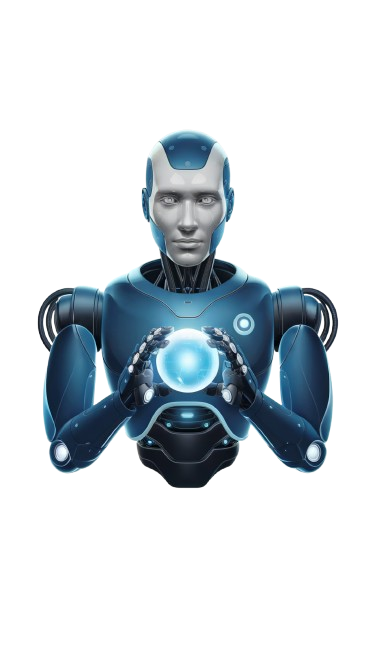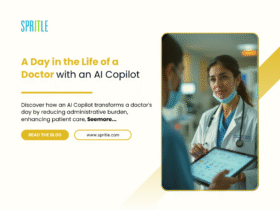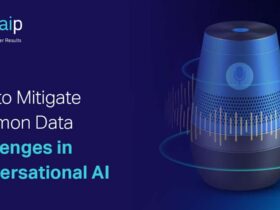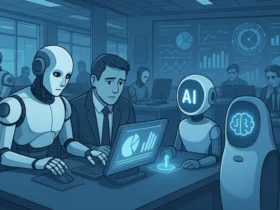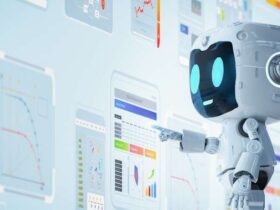Want to break free from the corporate grind? Learning AI skills is key. By 2030, over 950 million new jobs could pop up. This makes learning the best AI skills for a career change very important.
Whether you’re new to AI or have been in the corporate world for decades, these skills open up new doors. You can earn money on your own terms and work from anywhere. Tools like SEMrush and AdEspresso already help marketers succeed. Generative AI is changing many industries.
As you look for new paths, check out privacy policies like AI Generator Reviews’ privacy practices. They help keep your learning safe.
Key Takeaways
- AI could generate 950 million jobs by 2030, countering job loss fears
- Skills like NLP and machine learning form the foundation for AI-driven careers
- Right-Skilling adapts existing expertise to AI roles like content automation
- Beginners can start with tools like Jasper to build content creation skills
- Continuous learning in AI ethics ensures responsible innovation in new ventures
Why AI Skills Are Your Ticket Out of the Corporate World
Imagine leaving the 9-to-5 grind for roles where your expertise drives innovation. career transition AI opens doors to AI jobs that redefine work. Let’s explore how this shift transforms careers.
AI’s Expanding Influence Across Industries
AI is changing fields like healthcare and finance. The AI market is growing 37% each year, faster than traditional sectors. Companies need people who know their field and AI.
Whether you’re in marketing or logistics, applying your skills to AI is in demand. Roles like AI ethics officers and machine learning engineers are becoming more common as industries go digital.
Rewarding Salaries and Flexibility
AI jobs pay well. Entry-level AI developers start at $100k+, and senior roles can reach $150k+. This is more than what traditional developers make.
Data scientists earn $96k, and AI product managers make $113k. These figures show how AI jobs offer great rewards for those willing to make a change.
Remote Work and Global Opportunities
Location no longer limits opportunity. With remote AI jobs, you can work with teams worldwide. Platforms like Kaggle and GitHub help you showcase your projects to employers globally.
Whether you’re optimizing supply chains or designing chatbots, your skills are in demand everywhere.
“The future of work is AI-driven—and it’s waiting for you.”
- AI developer roles grow 13% yearly vs. 5% for traditional coders
- Salaries for AI ethics and governance roles reach $140k+
- 80% of AI roles now offer hybrid or fully remote options
Transitioning into AI isn’t just about pay—it’s about autonomy and impact. Start your journey today with resources like Coursera’s AI courses or LinkedIn Learning tracks. The corporate ladder is static; AI’s future is limitless.
Assessing Your Current Skills: What Transfers to an AI Career?
Switching to an AI career transition AI doesn’t mean you have to start from scratch. Look at your skills in analytical thinking and problem-solving. These are key for AI work. For instance, if you’ve managed projects, you can use your data analysis skills to improve AI model training.
Also, don’t underestimate the importance of soft skills like communication. Being able to explain technical stuff to non-tech teams is critical in AI roles.
Start by making a list of your strengths from your previous job. If you’ve worked in finance or marketing, you’re already familiar with handling data. Tools like Agent GPT make it easier to use this experience in AI. Gartner notes that the demand for AI skills has tripled in the last seven years, showing that adaptable professionals are in high demand.
- Transferable skills: Data analysis, project management, cross-team collaboration
- Underrated strengths: Communication for stakeholder alignment
- Technical bridges: Python basics or SQL knowledge
Then, find out what you’re missing. Look into courses on AI for beginners like Python or machine learning. Sites like Kaggle offer practical projects to hone your skills. Remember, 209 LinkedIn contributors say even non-tech workers can make the switch with basic AI knowledge. Start by seeing how your current skills match up with roles like data analyst or AI ethics specialist.
Be curious! Check out free resources, join online forums, and try out open-source tools. Your experience isn’t a barrier—it’s a stepping stone. Let’s turn your existing skills into an AI career advantage.
Best AI to Learn for Career Change: Top Technologies With Growth Potentials
Choosing the right AI skills can open doors to AI jobs in high-demand. Let’s explore the technologies shaping tomorrow’s opportunities.
Machine Learning Fundamentals
Machine learning is the core of AI systems. Learning algorithms like regression and clustering help solve complex problems. A McKinsey report says AI could add $13 trillion to the global economy by 2030. This makes it a key skill for best AI to learn for career change.
Natural Language Processing (NLP)
NLP connects human communication with AI, driving chatbots and content generation. Roles in this field are expected to grow 22% by 2030. Tools like GPT-4 show NLP’s power—see how it changes workflows in this guide.
Computer Vision Applications
Computer vision is key in medical imaging and autonomous vehicles. Healthcare and retail rely on it, creating jobs that need both tech and domain knowledge. Imagine automating quality control or improving customer experiences with visual data.
Generative AI and Large Language Models
Generative AI, including large language models, enables creative and analytical tasks. Those skilled in these tools can create personalized marketing content or develop AI-driven products. Salaries for these roles often start at $112K, with top earners making over $150K annually.
AI Ethics and Responsible Implementation
As AI grows, ethics becomes more important. Companies need experts who ensure AI systems are fair and transparent. This field combines technical skills with critical thinking, addressing societal impacts while advancing careers in tech governance.
Mastering these technologies prepares you for a sector expected to create 97 million new jobs by 2025. Start with foundational courses, then specialize in areas that match your goals. The future of work is here—get ready with the right tools.
Learning Pathways: From Corporate Professional to AI Specialist
Choosing the right learning path is key for your career transition AI journey. Look into self-paced, intensive, or structured options to match your goals. Let’s explore how to build skills with confidence.
Self-Taught vs. Bootcamps vs. Formal Education
Compare different paths based on time, cost, and results:
- Self-Taught: Free resources like Coursera and GitHub offer flexibility. Ideal for AI for beginners who value independence. Track progress with projects on platforms like Kaggle.
- Bootcamps: Programs like Uplimit and Eightfold offer immersive training. Real-time skill assessments from Gloat align learning with job needs. Great for quick skill acquisition.
- Formal Education: Degrees or certificates from institutions like MIT or Stanford deepen expertise. Best for leadership roles needing advanced theory.
Essential Programming Languages to Master
| Language | Key Use Cases | Starter Projects |
|---|---|---|
| Python | ML algorithms, data analysis | Build a spam filter with Scikit-learn |
| R | Data visualization, statistical analysis | Create a stock price predictor with ggplot2 |
| JavaScript | Interactive AI apps | Develop a chatbot with TensorFlow.js |
Building Your First AI Projects
Start small to grow confidence. Try these starter projects:
- Data analysis dashboard: Use Python to visualize sales trends
- Image classifier: Train a basic model with TensorFlow
- Chatbot prototype: Build a Q&A tool for customer service
Combine learning methods and hands-on practice. Begin today—the career transition AI journey starts with your first line of code!
AI for Beginners: Creating Your 90-Day Learning Roadmap
Starting your AI journey needs a plan. Use this roadmap to build your skills with confidence. AI for beginners works best with a steady pace—break down goals into weekly steps to stay focused.
“The global AI market is projected to reach $190.61 billion by 2025, growing at 36.62% CAGR (MarketsandMarkets). This growth means now is the time to act!”
- Week 1-2: Math Foundations – Learn linear algebra, probability, and statistics. Brush up on high-school math, which is key for AI algorithms.
- Week 3-4: Python Mastery – Start with programming basics on Codecademy or DataCamp. Python is a top choice for AI, thanks to its use in TensorFlow and PyTorch.
- Week 5-6: Core AI Principles – Explore supervised and unsupervised learning. Use Coursera’s Yatter to organize your study schedule.
- Week 7-8: Hands-on Projects – Work on models with Scikit-learn. Begin with simple tasks like predicting house prices or classifying images.
- Week 9-12: Specialize and Network – Pick a focus area (like NLP or computer vision) and join Kaggle competitions. Connect with others on r/MachineLearning.
Combine learning with practical work. Use free resources like Andrew Ng’s Machine Learning course (3M+ students). Track your progress weekly and celebrate your achievements. Stay inspired by following experts like Fei-Fei Li on LinkedIn or Medium.
Focus on consistency, not perfection. Even 30 minutes a day can make a difference. For extra help, try Yatter (linked above) for personalized study plans. In 90 days, you’ll have a solid portfolio for job fairs or interviews.
Breaking Into AI Jobs: Leveraging Your Corporate Background
Getting into AI jobs doesn’t mean starting over. Your experience in finance, healthcare, or retail is valuable. Here’s how to use it to your advantage in the career transition AI journey:

Industry-Specific AI Applications
Start by looking at AI trends in your field. For instance:
- Healthcare: Use your knowledge of clinical workflows to create AI diagnostic tools.
- Finance: Use your risk management skills to build fraud detection models with TensorFlow.
- Retail: Improve supply chains with computer vision for inventory tracking.
Building a Professional Portfolio
Showcase your skills by working on projects that mix business and AI. Here are some ideas for your portfolio:
| Project Type | Description |
|---|---|
| Case Study | Document how you improved sales forecasts using NLP in retail |
| Technical Blog | Write about deploying Google’s Gemini for customer service chatbots |
| Code Repository | Share prompt-engineered solutions on GitHub for ethical AI use cases |
Networking Strategies
Here are ways to boost your transition:
- Join specific groups on LinkedIn: Look for “AI in Insurance” or “Ethical AI Advocates”
- Enter hackathons by OpenAI or NVIDIA to get certified
- Start a YouTube series to explain AI to non-tech people
“Your corporate experience is the bridge between business needs and AI solutions—highlight it boldly.”
Remember, companies want people who can turn tech into business value. Start with OpenAI’s free courses. Then, work on projects that tackle your sector’s challenges. The future of AI jobs is for those who blend expertise with innovation!
Conclusion: Taking the Leap from Corporate Life to an AI-Powered Career
Imagine a career where your skills drive innovation and autonomy. The shift to AI isn’t just a trend—it’s a necessity. AI is expected to create 950 million jobs by 2030. This surge in demand includes roles in machine learning, NLP, and ethical AI.
Project management roles could see 2.3 million openings annually by 2030. These roles blend technical expertise with strategic planning. This shows how AI is changing the job market.
Start by mastering the best AI to learn for career change. Learn Python, data visualization tools like Tableau, and ethical frameworks. Arizona State University, in partnership with OpenAI, is already teaching these skills.
They use AI avatars and personalized tutors. This shows how learning pathways are evolving to meet the demand for AI skills.
Opportunities in AI jobs are vast, covering finance, healthcare, and e-commerce. Data Scientists can earn up to $130,000 annually. Machine Learning Engineers can earn over $140,000 in tech hubs.
These figures show the value companies place on AI proficiency. Success in AI careers requires continuous learning. Participate in Kaggle competitions or master SQL and R to stay ahead.
Transitioning to an AI career requires courage. But, the tools are available. Bootcamps, online courses, and platforms like Career and Life Design Lab’s 24/7 virtual support make the journey easier.
AI isn’t replacing humans—it’s amplifying human ingenuity. M’hammed Abdous notes that the future favors those who merge technical skills with ethics and creativity.
Start today. Audit your current skills and align them with the best AI to learn for career change. Use free resources like OpenAI’s tools. Whether you pivot fully or explore part-time, the path forward is clear.
Your next move could unlock not just a job, but a career where your expertise shapes industries. The future of work awaits—your move.

